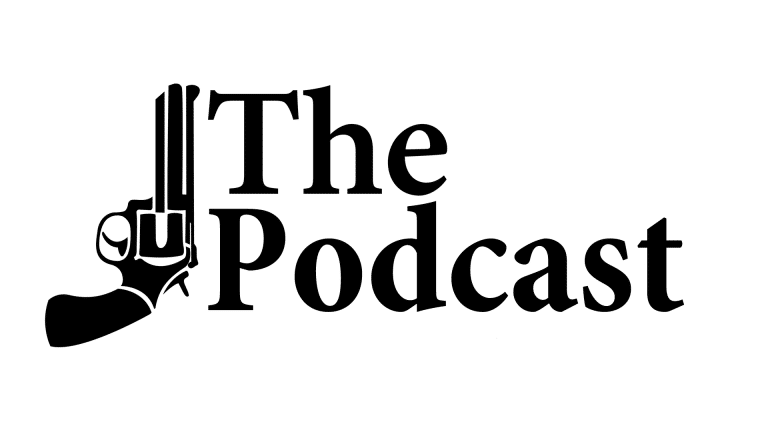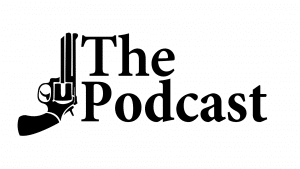Northeastern University’s James Alan Fox joined the show this week to talk about his decades-long research on mass shootings. Working with USA Today and the Associated Press, he has spent years documenting shootings where four or more people are killed. He’s also researched the killings to better understand how and why they happen.
He talked about how many members of the media have greatly expanded the definition of mass shooting and why it’s causing confusion among the public. We also discuss some of the misnomers about what leads to mass shootings. Then we go over the real causes and some of the potential solutions.
Plus, I talk about my recent in-depth report on the first-ever Gun Makers Match. And I give an update on the fight over permitless carry in Louisiana.
You can listen to the full podcast here:
Or you can watch the video of the podcast below:







2 Responses
I liked the Fox interview. I didn’t realize it was an entire year ago that you had him on the podcast. I think with a year’s worth of podcast interviews you’ve improved your interview skills as well. It’s not easy to video yourself each week talking to guests.
Fox has been at it a while, studying mass and serial murder since 1982 according to him . He brings that long-term perspective to the topic, few people have. He also knows how to put it in context especially compared to the broader misuse of guns in crime. Mass murder is rare (0.21% of homicides and 0.96% of victims), “less than one percent” as he mentioned towards the end of the interview. Those stats are courtesy of a 2015 CRS report that looked at ~197,000 homicide incidents from 1999-2011.
He’s rational in his approach to mass murder, which I like. He mentioned it during the interview. However, if you read his USA Today columns, he’ll write about the topic in a rational matter, but at the end when it comes to a policy prescription he basically throws out everything he said in the preceeding paragraphs and says Congress should pass an assault weapons ban in solidarity with the victims. A completely irrational approach which baffles me.
He makes a statement regarding using the mass shooter’s name that is more nuanced than I usually see in the crowd that says, “don’t use the shooter’s name”. Ok to use the name, but don’t objectify the killer. No need to know his show size or that he played tennis in high school as examples he used regarding the Vegas killer.
Because he’s been at this for so long, he’s aware of things that others have forgotten, or never learned in the first place, namely societal issues are a big factor in these mass murder incidents. Back in the early 1990’s you’d see intellectuals like Don B. Kates (e.g. C-Span-televised George Mason U. Law School presentation) and David Kopel (his book, “The Samurai, The Mountie, and the Cowboy…”) discussing social forces, rather than guns driving crime (and suicide), but I don’t see that much discussion about that, if at all these days. The Public Health researchers have come to dominate the gun violence research field, and they pretty much exclusively focus on the implement of violence and self-destruction (the gun) as the cause and reduction of its ownership as the solution. I think that focus is why you don’t see the social forces/societal issues view as the cause of the problems that some people resort to misusing guns to solve.
Fox has a point about people not knowing their neighbors like we once did. My wife is a die-hard Dirty Dancing movie fan and when we stayed at the hotel near Blacksburg, VA where much of the outdoor shots of the movie were filmed, while sitting in the hotel library, I spoke with an older gentleman who talked about this phenomenon as well. His thesis was that air conditioning technology was largely to blame for this outcome. Before A/C ppl would have their windows open or be out on the porch giving people more opportunity to interact with neighbors, but after A/C became more prevalent people closed their windows and remained indoors in the controlled environment reducing those neighborly interactions. I think that’s a valid perspective.
Fox talks about an improved social support system perhaps as extensive as they have in Europe as a way to help out people in general, but as a side effect helping to reduce mass murders. Prior to the Great Depression, local & state funding exceeded Federal government funding, but that changed during FDR’s presidency. We’ve spent nearly a century increasing govt support to citizens (New Deal & Great Society to name a couple), but it really doesn’t seem to reduce poverty or make people better off (see Ronald Reagan’s critique of social spending in the video of his 1964, “A Time for Choosing” speech). I think it would be better to improve those bonds with neighbors rather than add more government welfare as the fix to societal issues.
Thanks again Stephen for doing these podcasts.
Thanks for the kind words and the thoughtful response. I really enjoy reading what you have to say on this topic!